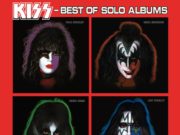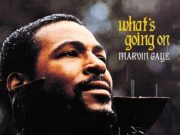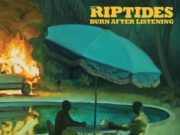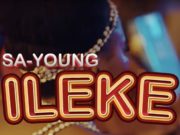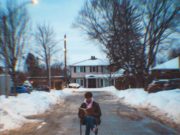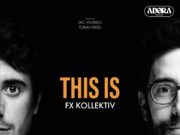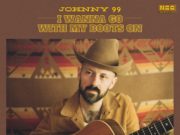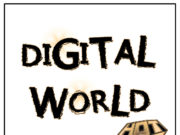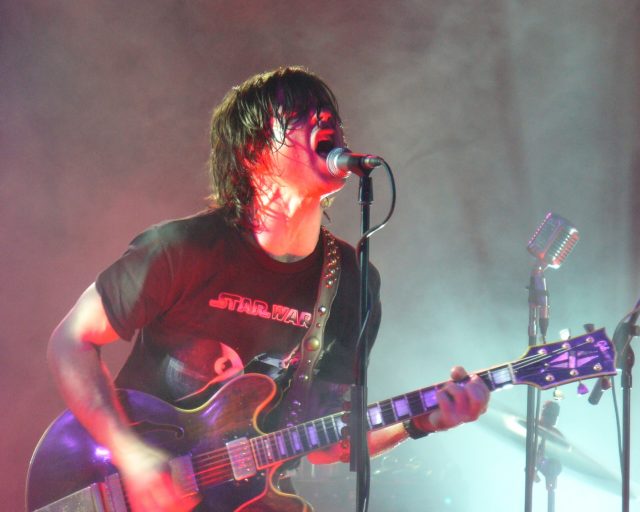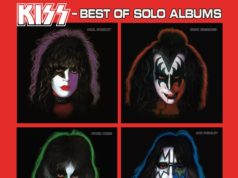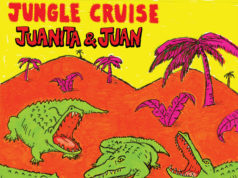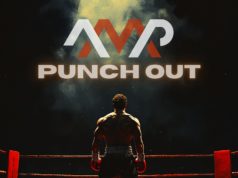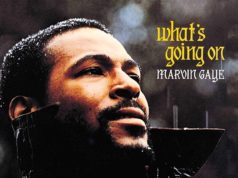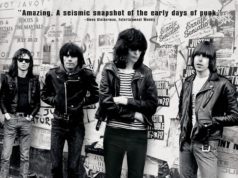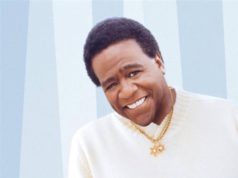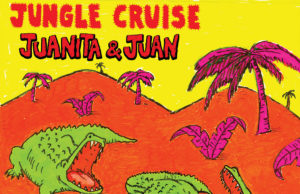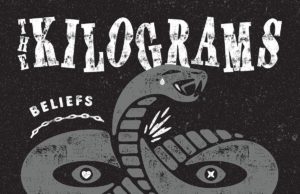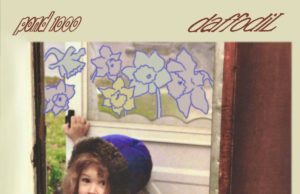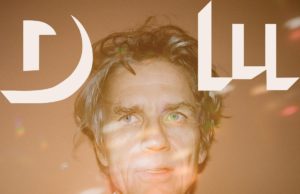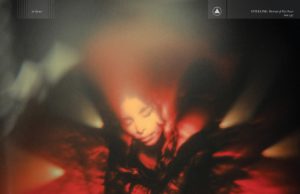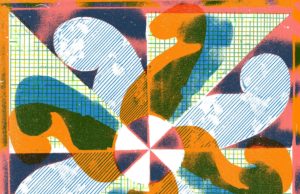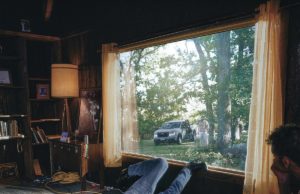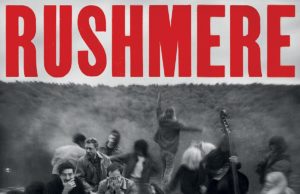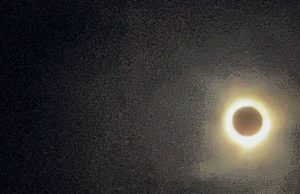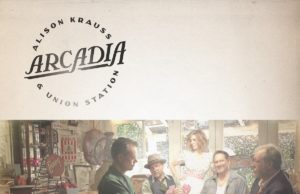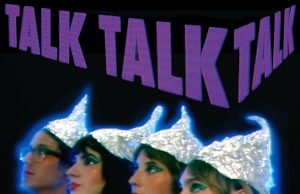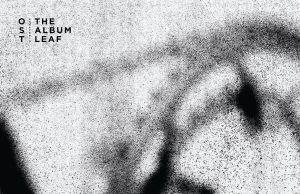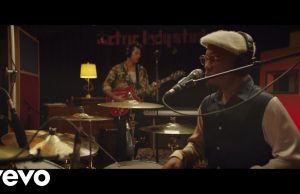Since Nov. 5, 2018 is Ryan Adams‘ 44th birthday, it seemed as good a time as any to replay my 2011 interview with the prolific singer-songwriter. Here it is, with a few minor edits:
• • •
In 2009, music was the last thing on Ryan Adams’ mind. After 15 years of hyperactivity — first with alt-country pioneers Whiskeytown, then with his own band The Cardinals — the singer-songwriter had been silenced by a severe inner-ear disorder.
“I was really f—ed,” reveals the North Carolina native. “I was in pain. It was just anguish.” The cause: Meniere’s disease, a condition whose symptoms include tinnitus, vertigo, headaches and nausea. Adams endured a particularly nasty bout.
“The tinnitus I had wasn’t just a ringing in the ear; it was so loud I couldn’t hear over it. Headaches come with it. Also, there’s a feeling of seasickness, nausea. I didn’t even have the opportunity to have vertigo because I was immobilized much of the time. I was starting to not be able to live even a fraction of a normal lifestyle. So my mindset wasn’t really thinking about music at all.”
For the unabashedly prolific Adams — who released 10 albums between 2000 and ’08, much to the chagrin of some critics and fans — it was like slamming the brakes on a race car. But it wasn’t the only major change in his life in 2009. That year, he wed singer Mandy Moore. He moved to L.A. He published two collections of poems and short stories. He got healthy. And slowly, he began to recover from Meniere’s and make music again.
The results speak for themselves: His aptly titled 2011 album Ashes and Fire was a gorgeous return to form, with a musically and emotionally grounded Adams delivering smouldering roots rockers and romantic ballads with focus, purpose and clarity.
From his home, the thoughtful Adams shot from the hip about his internal alchemist, being a whipping boy and getting back inside the music.
When you walked away, was it solely because of your hearing or were there other factors like burnout?
Well, when you’re dealing with something like I had and for as long as I had — I started recognizing symptoms around 2004 or 2005 — it’s very difficult to separate what part of your life is being overshadowed and what part is not. My condition was part of my condition, if that makes sense. There were other things, but they didn’t really matter. I just wanted to not be in pain. So I took a year and just rested and sought alternative therapies because there is no cure for this. It’s just about how you deal with it. I’m more than convinced now that my grandfather had it. He was really hard of hearing. They didn’t have a name for it back then, he was just deaf. Obviously, things have come a long way since then, so I was able to deal with it and get back to things as they were.
When you were able to play and write again, did the floodgates open or was it a slow process?
It was a little bit of both. I kept a pocket notebook and wrote down word clusters or thoughts or things that popped into my head. Little by little, I started to play guitar again just for enjoyment. And over time, structure started to come out of the playing — things I couldn’t explain and things I had never thought about doing before. It was really interesting; this web of ideas and songs started blossoming. But I tried not to think too much about what was happening. There wasn’t any doubt there, but I wasn’t rushing to the finish line of every tune. I let things build on their own.
How did the changes in Ryan the person — getting sober, getting married, settling down — affect Ryan the songwriter?
Well, I’ve been sober a while. And I don’t feel like any relationship changes a songwriter’s relationship to his muse. And I wouldn’t characterize my life as settled down. I think of settling down as moving to the outskirts of town and raising a family. I do like that picture; that sounds lovely. But it’s not me. (Laughs) I have this internal world where I go to write. In my imagination I’m like a wizard or an alchemist, and there’s this magic door, so to speak — and when I go through that door, there’s a place where there are no wrong answers. There’s just creation and imagination and a mystical environment of emotion and curiosity. It’s where I go to release myself from the toxicity of doubt and pain and anger and frustration and the things people see every day that bring them down. I’ve needed that place my whole life. I learned a long time ago that door is always open to me in any environment. But I’ve learned I don’t have to rush there all the time.
Does that mean you’re going to slow down and make fewer albums?
Well, I still answer to the muse. I don’t know. If I’m overcome with ideas and they feel beautiful and they need to be finished, I’ll finish them. I think maybe my great trick will be that I’ll convince everyone I spent more time on them than I did. That way they won’t judge me so harshly.
I’ve never really understood why you’ve got flak for being productive when other people — Jack White, say — are applauded for it.
I don’t either. I think it’s funny and sad that it’s my destiny to be the person who’s ignored or even punished for that. But it doesn’t, it can’t and it won’t change my love of making music. These songs are maps that people can use to change their perspective. Or they can just be beautiful things. Or they can be nothing. They’re just expressions of creativity and they’re made with love, so they can’t be bad. And in a world of bad things, the way I’ve been judged is ridiculous. I was ridiculed and humiliated in the press for years, treated like s— to the point where most people would have walked away. I didn’t, because it’s what I do and what I love. But it’s not created so people will love me. I haven’t tried to orchestrate my career to look cool. Clearly I haven’t given a f— about being hip. That takes up so much energy and time. And I have a feeling when it’s all said and done, the work will speak for itself. And I’ve done great work. I’ve been honest.
What’s it like being onstage these days?
I’m playing solo, and they’re the best shows I’ve done. It’s just me, a guitar and the audience. I play the songs as they were written, which is thrilling. I don’t know what happened, but I’ve never been more inside the music.



